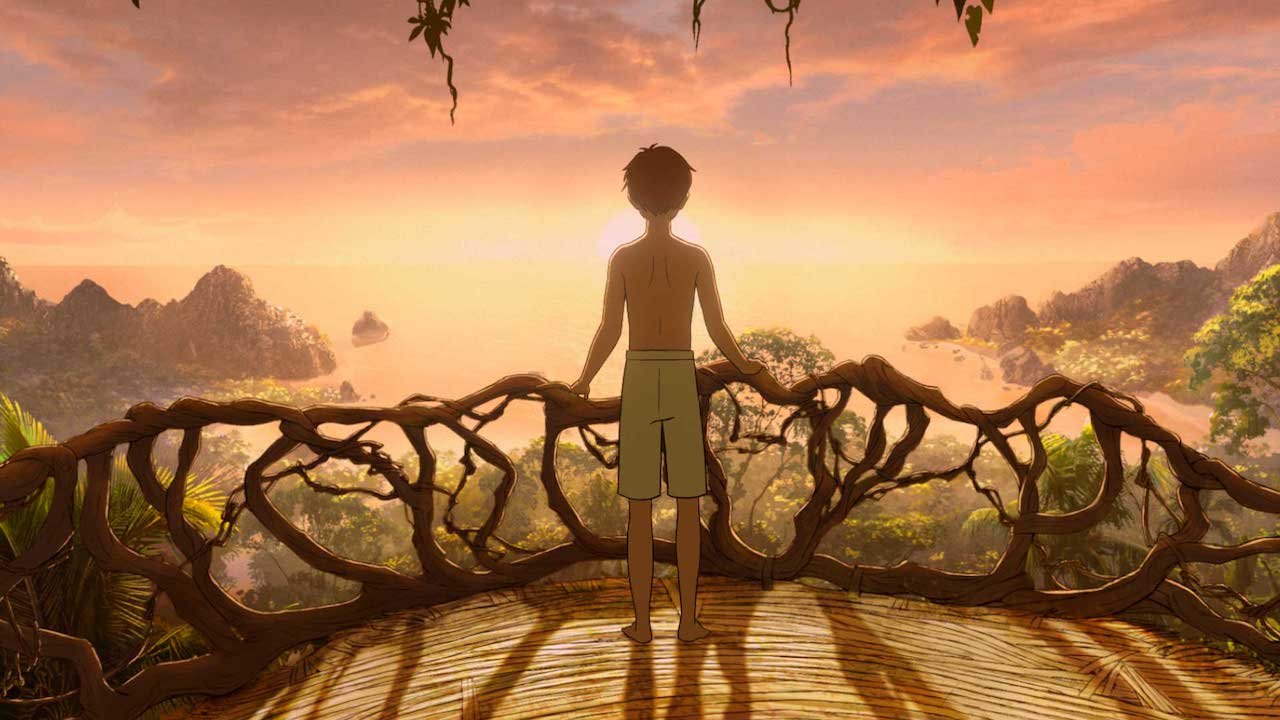BFI LFF 2023 | "Kensuke's Kingdom"; Elevated Animation Wonderfully Frames A Classic Children's Story
10/12 ForReel Score | 4/5 Stars
In the last few years, there's been a shift in the world of animation. The style of the straightforward 3D animated film that dominated the 2010s - think Disney projects such as Moana or Frozen with crisp CGI and almost too real production design - is being quietly put to the side by non-Disney animation studios. It's as if animators feel they have rinsed that type of filmmaking for all that it can give. There's change in the air, and animators are starting to play with the form in a way that they haven't done in years, looking backwards at styles which have fallen out of favour and revitalising them, and looking forward to ways in which the existing tech can bring animated stories to life.
Image courtesy of BFI
We’ve seen this playfulness in the likes of the Spiderverse films, Puss In Boots, Teenage Mutant Ninja Turtles and Guillermo Del Toro's Pinnochio. There's an artistry to these movies that's been missing for a minute - a sense of sheer artistic abandon and a complete lack of desire to emulate photo-realism, like a graphic novel or an illustration has been peeled from the page and inserted onto the screen. It’s an incredibly exciting place for the world of animation to find itself in, and it’s into this category that Kensuke's Kingdom fits.
The animation style of the film sits in that strange period of the late 90s/early 2000s where 2D animation was clinging on by a thread and 3D animation was rising to prominence, the two styles often finding themselves clashing within a singular film. 2D characters with 3D surroundings became the norm for a second in films such as Treasure Planet or The Prince Of Egypt where our traditionally animated heroes rode 3D ships or parted 3D seas - and it’s that style that Kensuke's Kingdom emulates.
The film looks utterly gorgeous, and it's a nostalgic delight to see a contemporary film adopt such a traditional style for its storytelling. It's like a warm hug of a film, evoking memories of childhood and simplicity, and it's hard to imagine the tale being anywhere as effective were it in the form of 3D animation or even live-action filmmaking. The prospect of this generation of kids having a film of this style that belongs not to their parents but exclusively to them is incredibly exciting, and there's a lot to be learned from the story it tells.
Like all the best children's literature, Kensuke's Kingdom holds its young audience with the utmost respect. It doesn't underestimate them, or shield them, or hide the truth of the world from them. Instead, it's brutally honest and therefore all the more enrapturing. It reveres its audience, and feels privileged to be telling them its story. There's a Ghibli-esque sincerity to it that's absent from a lot of modern children's media. It's a completely serious film, completely lacking in any sort of silliness or slapstick. That, alongside the film's slower and more thoughtful pace, might prove challenging for modern audiences. Although the runtime is a brisk 84 minutes, there isn't masses of story to tell in that time. The script takes its time, wary of rushing, and allowing us to sit with the characters and the place and the story. The result is an ending that packs an even greater punch thanks to the care and compassion that's been taken to get there.
Based on Michael Morpurgo's 1999 novel (a primary school staple amongst a certain generation of British children) it's surprising that a feature length adaptation of Kensuke's Kingdom has never materialised until now - but it feels like this is exactly the film that the book was always meant to be. It's good that a film like Kensuke's Kingdom exists. It's good for the cinematic landscape, it's good for the children who watch it, and it's good for the culture. The world of animation is in an incredibly healthy place indeed, the creativity bursting from within it completely revitalising the form. Long may it continue, and what an exciting addition to the collection we have with Kensuke's Kingdom.


